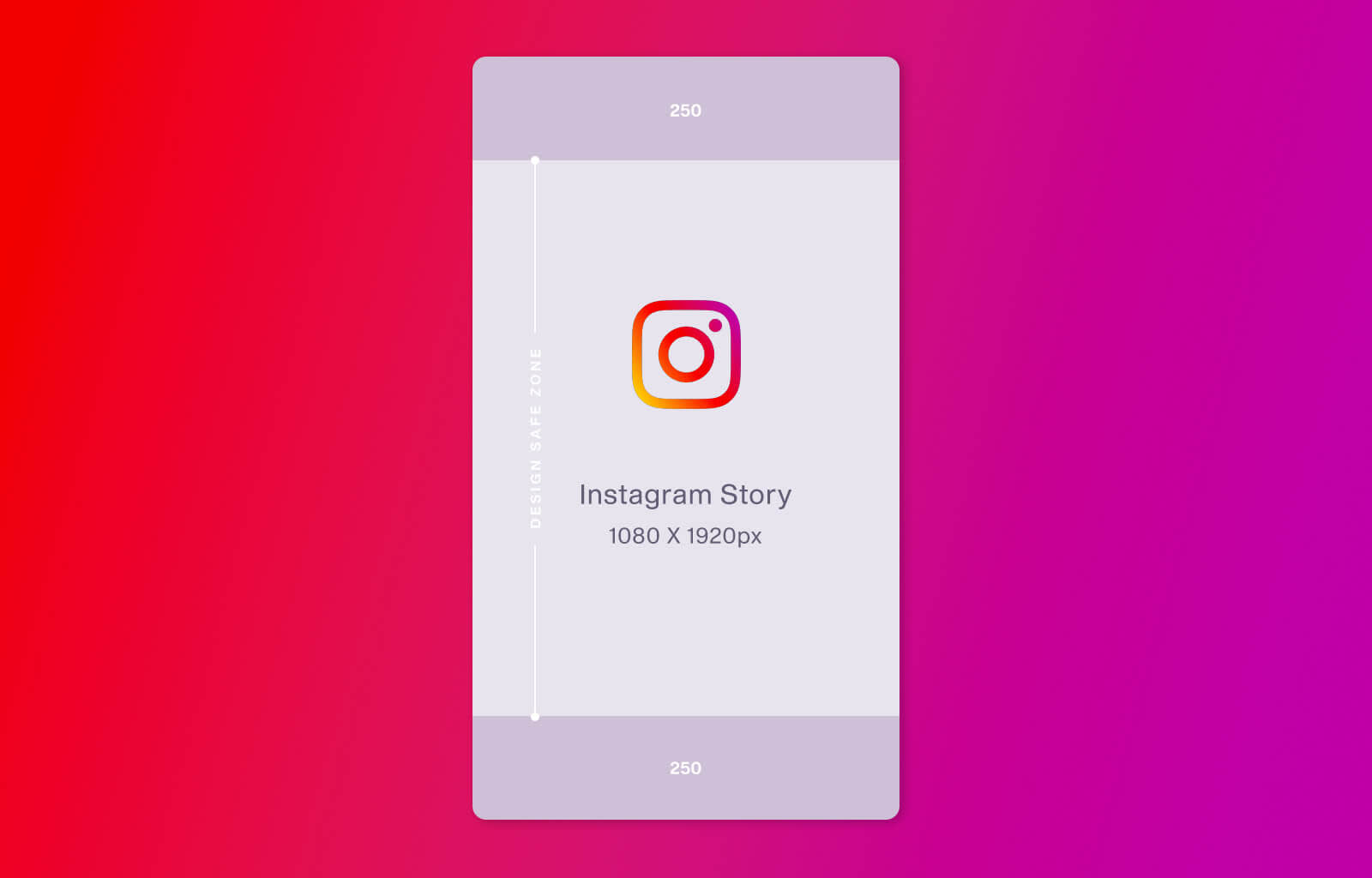
Instagram is an exceptionally powerful marketing tool for businesses. There’s no better opportunity to organically reach the masses and turn fans into followers (and future customers) than with a rock-solid IG presence. To help, we're going to demystify Instagram Story size and show you how to design beautiful Stories in PicMonkey.
The correct Instagram Story size
Instagram launched its stories feature in 2016. Many saw it as a direct response to Snapchat’s success (and at the time, IG CEO Kevin Systrom agreed). Copycat or not, over 500 million people use Instagram Stories every day.
The correct Instagram Story size is 1080 x 1920 pixels, with a 9:16 aspect ratio. These are vertical-friendly dimensions. If you capture a horizontal image or video on your phone and then upload as an IG Story, it's not going to look good.
Here are a few more specs and details to know about Instagram Stories:
Supported image files: JPG & PNG, under 30 MB in size.
Supported video files: MP4 and MOV, under 4 GB in size.
A Story is available on your profile for 24 hours, unless you save it as a profile highlight.
Anyone can watch if your account is public; otherwise, just your followers.
Now here's how to quickly create a perfectly sized Instagram Story with PicMonkey.
Create an Instagram story with a pre-sized blank canvas
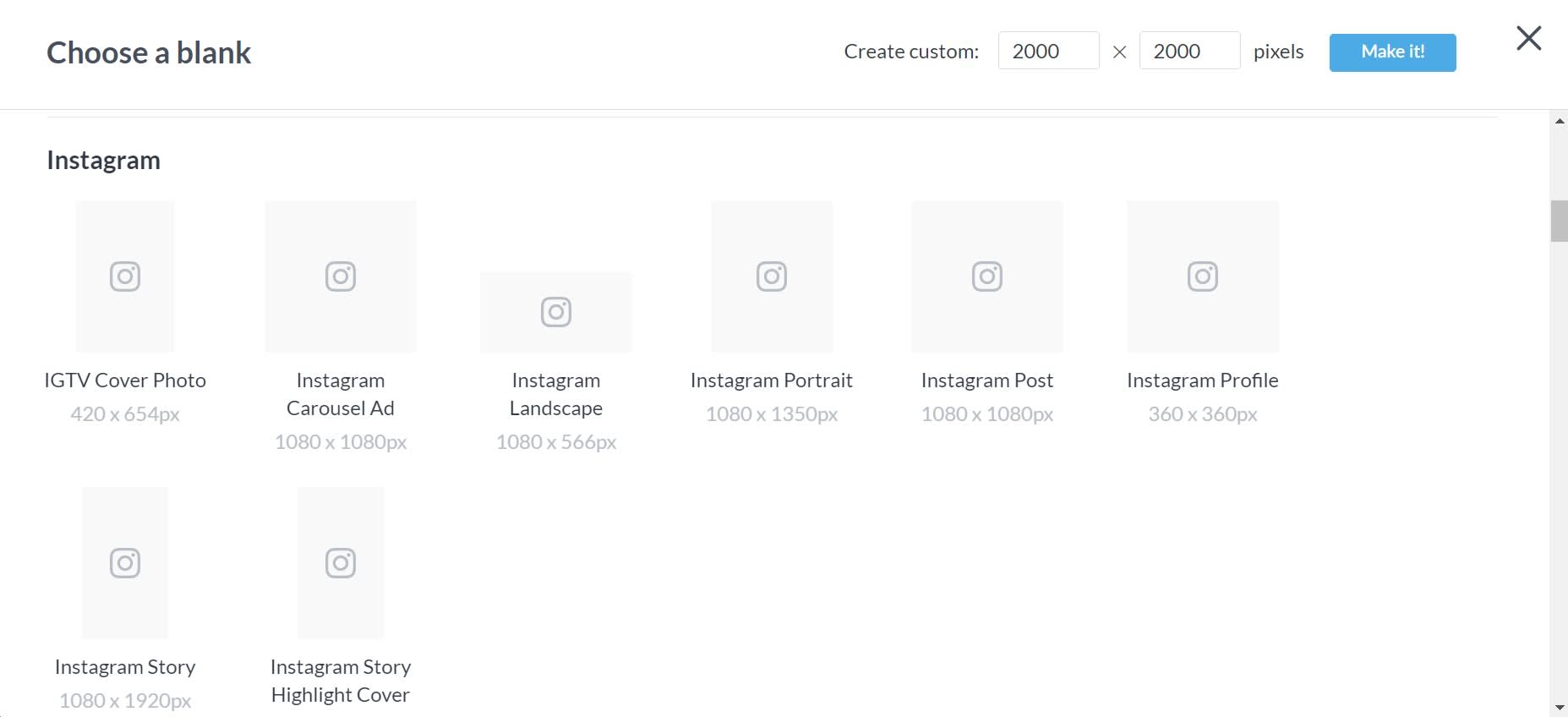
An easy way to get the perfect IG Story size is by using PicMonkey’s pre-sized blank canvases.
On the PicMonkey homepage, click Create new > Blank Canvas, then select the layout for Instagram Story. Simple as that — now you can get right to designing.
Crop an image to the right Instagram Story size
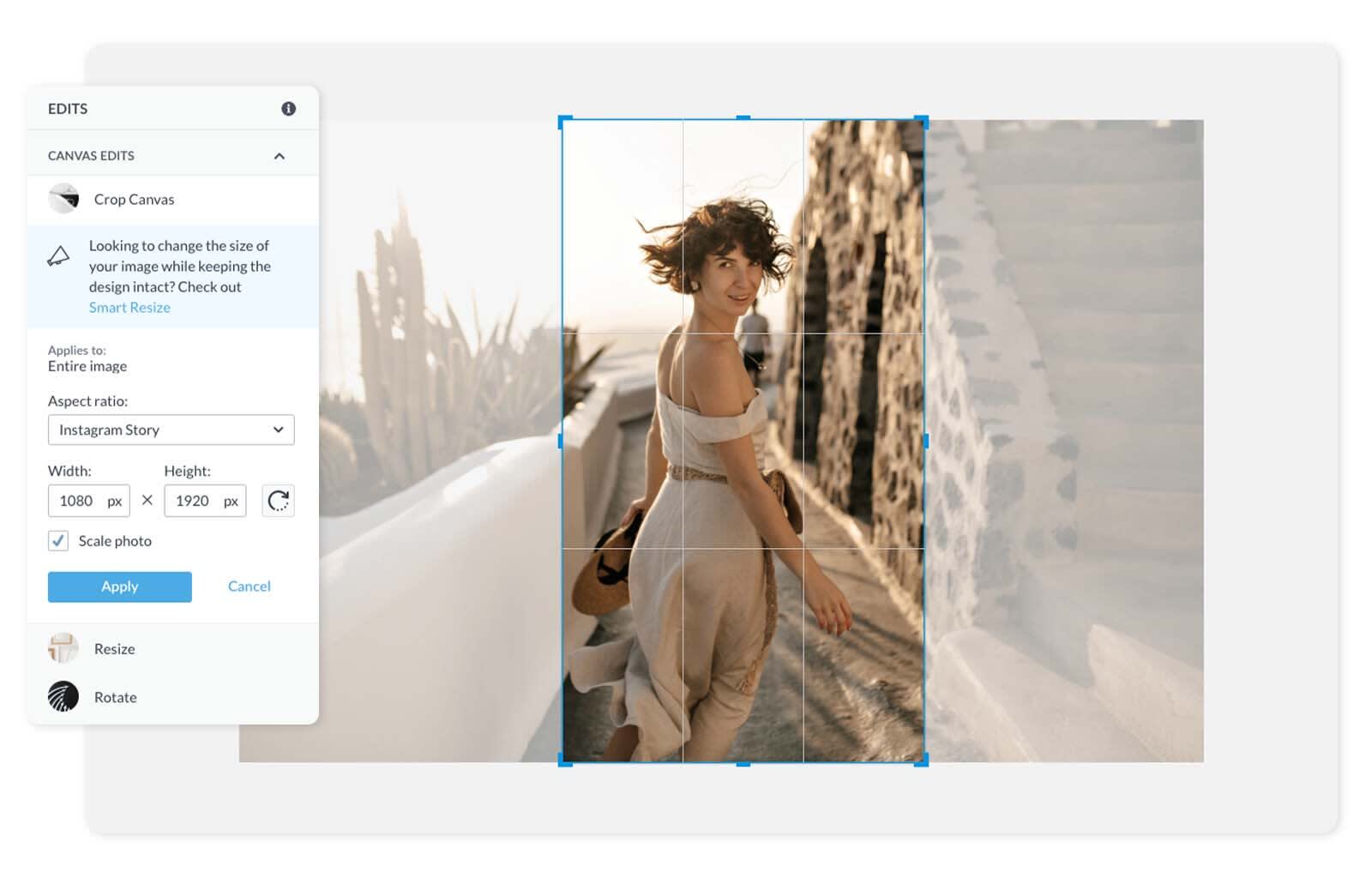
Crop & Resize make sizing your images a cinch.
When you have the right image but maybe not the right size, upload it to PicMonkey (make sure it’s a high-resolution photo) and use our Crop tool.
You'll find Crop in the Edits menu. Under Basic Edits, click Crop Canvas. Set your Aspect Ratio to Instagram Story. Once you’ve positioned the grid where you want it, click Apply to save your changes.
If your image already has the right aspect ratio but is simply too small or too large, use our Resize tool instead. Same dealio — find it under Basic Edits.
Make an Instagram Story with a design template
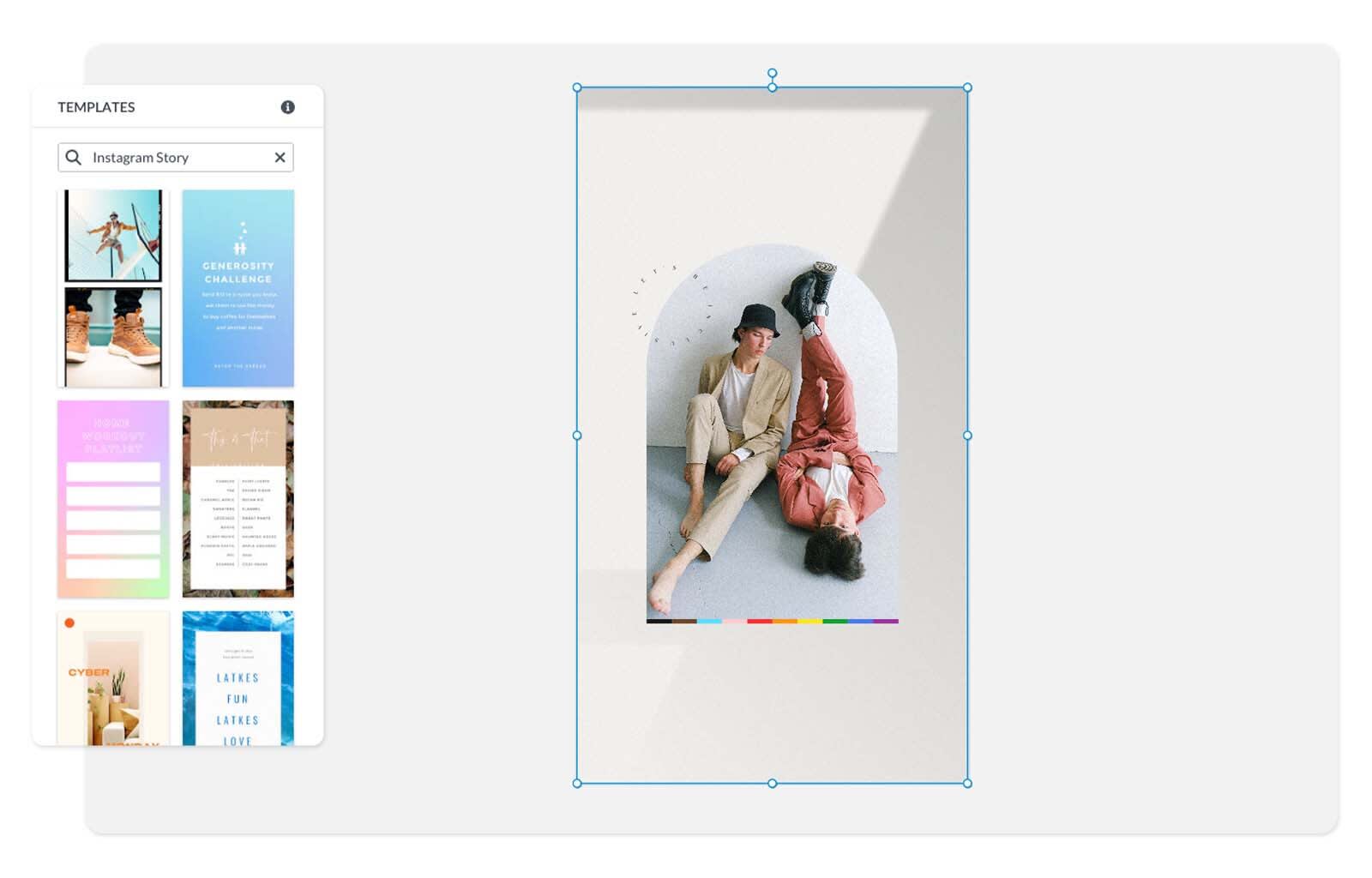
Get Instagram Story size right with a designer-made template.
For the correct Story size and a head start on your design, check out PicMonkey's library of Instagram Story templates. Choose from single or multi-slide Instagram Stories.
If you're already in PicMonkey, simply click Templates on the top toolbar and search for Instagram Story. Once you've selected a template, you can swap out the images with your own and customize the design with colors, graphics, and text.
Use Smart Resize to output your image to other sizes

PicMonkey Pro subscribers have access to the mystical powers of our Smart Resize tool. This helps you quickly output a single image to a variety of other image sizes.
So, if you're digging your IG Story design and want to see how it would also look as a Instagram post or Facebook ad or Pinterest Pin or infinity more outputs, you can do so.
Smart Resize is a better option than standard resizing because it adjusts placement of your design elements to fit perfectly in the dimensions of each image.
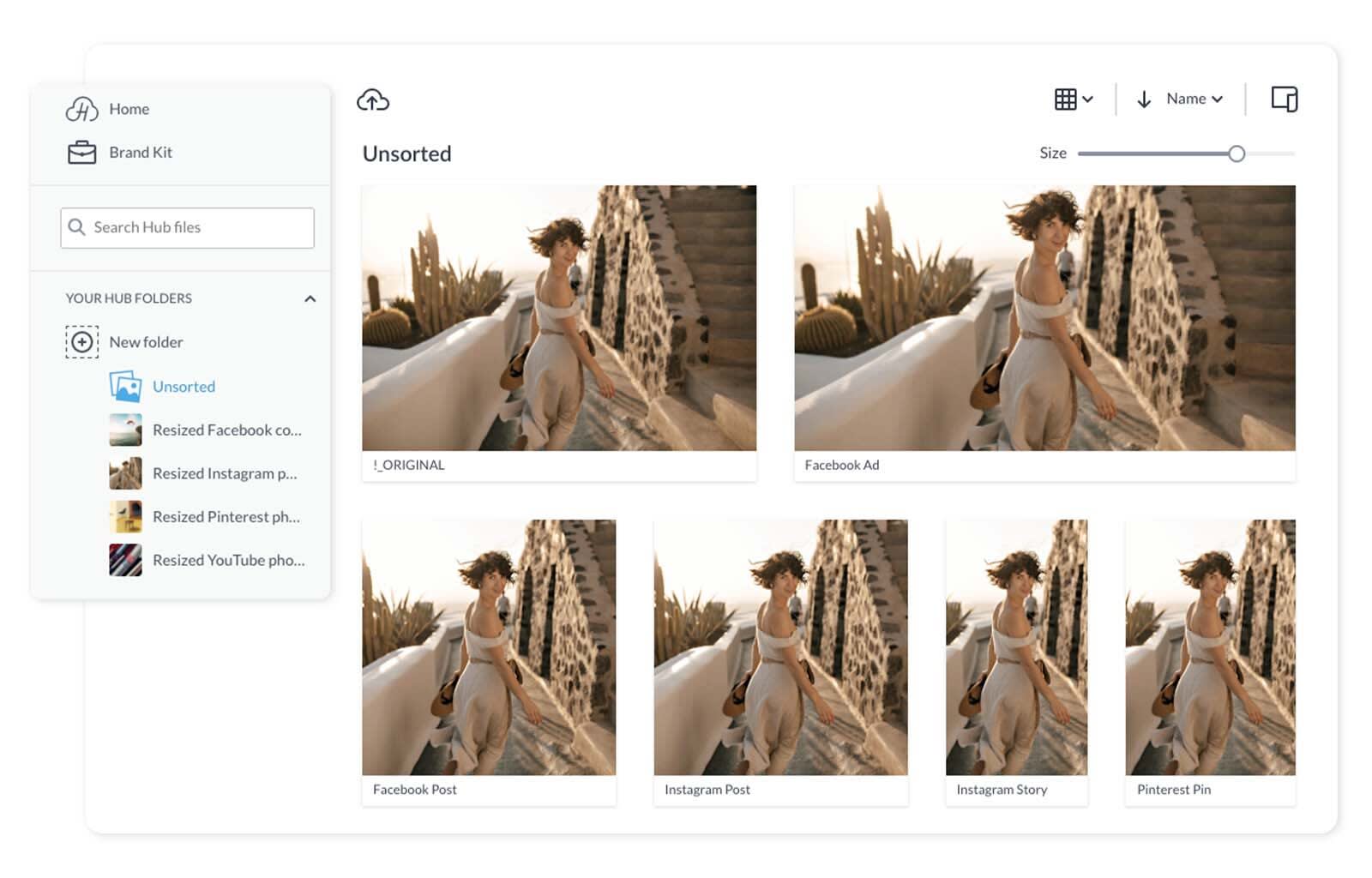
Once you've checked off your desired sizes, click Copy & Resize. This'll preserve your original image in addition to making the new ones. Afterward, hop into Hub — PicMonkey's cloud storage — where all of your images will be waiting.
More Instagram image sizes (2022)
| Social media image type | Dimensions in Pixels |
|---|---|
| Instagram Post | 1080 x 1080 (1:1 ratio) |
| Instagram Profile Photo | 360 x 360 (1:1 ratio) |
| Instagram Landscape Photo | 1080 x 608 (1.91:1 ratio) |
| Instagram Portrait | 1080 x 1350 (4:5 ratio) |
| Instagram Story | 1080 x 1920 (9:16 ratio) |
| IGTV Cover Photo | 420 x 654 (1:1.55 ratio) |
Need sizes for other social media accounts?
Instagram Story Dos and Don'ts
Now that you're a sizing guru, here are a few Dos and Don'ts to think about as you start designing your Stories.
Coming up with content
Do find balance in your content, offering viewers what they can’t find in your daily posts or by taking a look at your profile. A look behind-the-scenes at your brand, reposts of all the great things people are saying about you, teasers for upcoming content, and stories with extra personality are all viable options.
Use things like polls and questions to engage your viewers and receive feedback. If you’re a business account with at least 10,000 followers, you can also add a link to your story. This is super helpful if you want viewers to see more of your great content.
Don’t focus solely on self-promotion. Whether a personal or business account, viewers see right through overly sales-y content that’s only focused on selling instead of providing any other value. Find that balance, yo. Give your viewers valuable, visually-engaging content and you won’t have to try so hard with a subsequent call-to-action.
Using text in your designs
Do use text if deemed relevant. Short-form copy only.
Don’t overpopulate your stories with words. Instagram is a wholly visual platform for visual storytelling. Each story can only be 15-seconds long, so you don’t want to leave viewers reading huge chunks of text. You can use hashtags in your stories, just be intentional about them.
Posting Instagram Stories
Do post stories on a schedule. Since they’re an engagement tool, it’s worthwhile to post multiple times throughout the day.
Don’t overpopulate your feed with 50 unique story clips. You’re likely to discover that viewers aren’t watching all the way through, and it’ll double the effort you have to make in order for each of your stories to be maximum-level engaging.
Want more insider knowledge on achieving massive Instagram success? Give our Instagram articles a browse.
